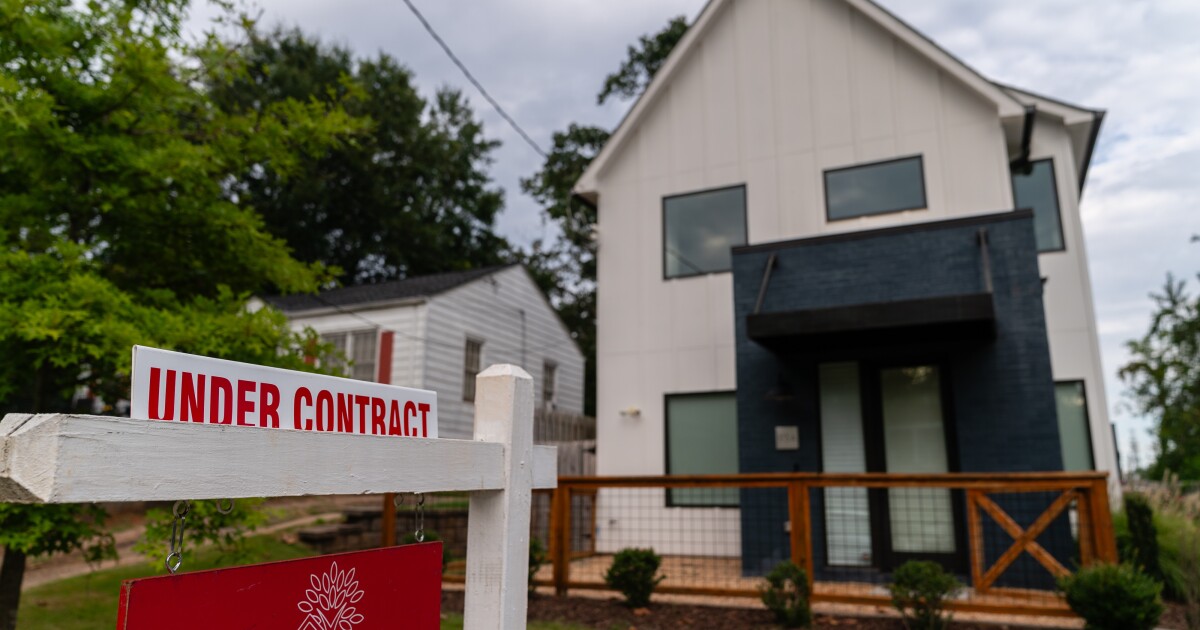
Pending sales of previously owned US homes rose in March by the most in more than a year as a brief dip in mortgage rates and a rising supply of houses brought out spring shoppers.
An index of contract signings climbed 6.1%, the most since December 2023, to 76.5, according to a monthly index from the National Association of Realtors. The median projection in a Bloomberg survey of economists called for a 1% gain.
The sales pickup last month coincided with a temporary drop in financing costs, with 30-year mortgage rates falling as low as 6.67% in early March, Mortgage Bankers Association data show. Rates have since rebounded to 6.89%, but "even minor fluctuations" can motivate buyers, NAR Chief Economist Lawrence Yun said in a release.
READ MORE:
"While contract signings are not a guarantee of eventual closings, the solid rise in pending home sales implies a sizable build-up of potential home buyers, fueled by ongoing job growth," Yun said.
Even with March's increase, the pending sales gauge remains well below its 2021 levels, when it generally hovered above 110. US consumers are increasingly worried about the economy, especially President Donald Trump's tariff policies. The University of Michigan's monthly consumer sentiment index is near its
Besides still-high mortgage rates, the median sales price of a previously owned home is 44% higher than it was in March 2020.
If there's any consolation, the supply of existing homes for sale is starting to improve, as sellers begrudgingly accept that mortgage rates will remain high and agree to put their homes on the market. Moreover, a growing number of cities are seeing prices begin to retreat.
RELATED:
Eleven of the 50 most populous US metropolitan areas saw median annual price declines in the four weeks ended April 20,
Around the country, contract signings in the South, the largest home-selling region, rose 9.8%, its biggest gain since June 2020. Sales also climbed in the Midwest and West, but dipped slightly in the Northeast, according to the NAR.
Pending-homes sales tend to be a leading indicator for previously owned homes, as houses typically go under contract a month or two before they're sold.



